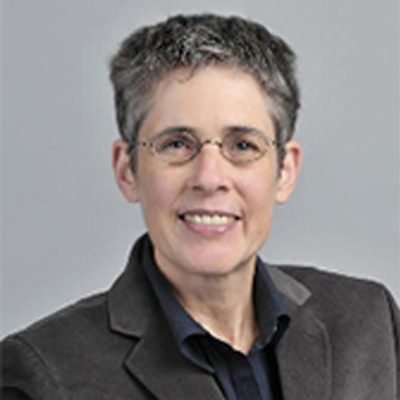Promoting the rule of law for those who need it most
According to recent data released by the government, Immigration and Customs Enforcement (ICE) is holding US citizens by the hundreds since 2011 but the government continues to deny that it even happens. Professor Jacqueline Stevens, of Northwestern University, highlights specific U.S. deportation policies conducive to unlawful actions against immigrants and US citizens. For example, in September of 2014, a man was arrested by ICE in Chicago. Agents documented that he was arrested at his private residence and that ICE lacked evidence he had ever pursued obtaining paperwork on his US citizenship. Stevens' research however, discovered that the address listed by ICE agents as the individual's home was actually the federal building housing the U.S. Citizenship and Immigration Services, and that agents had apprehended him during his appointment to obtain his Certificate of Citizenship. In short, the documentation provided by ICE agents had been fraudulently reported. Professor Stevens' Deportation Research Clinic, modeled on a public health clinic, has used individual cases, like the case in Chicago, to study and remedy state violence, and systemic malpractice among government officials and the deportation system they oversee.
In this spirit, she authored a prize-winning series of investigative articles on how Immigration and Customs Enforcement was illegally deporting and detaining US citizens through a network of secret, unmarked field offices where people were not allowed to contact attorneys; and holding hearings in secret immigration hearings, in violation of the law. The culmination of Stevens' research helps inform the scholarly community and the general public about the effects of deportation practices in the US and elsewhere on the rule of law. In addition, Stevens' research directly benefits individuals in wrongful deportation proceedings as well as informs members of Congress, their staffs, and federal judges, about the largely hidden outcomes of major policy decisions. Aside from the direct outcomes of her research, Dr Stevens' method also shows how political scientists can use new technologies to capture and theorize important political events in real-time, an important departure from the 20th century approaches that are either retrospective or predictive.
Current Research Includes:
-
Assisting US Citizens: Professor Stevens' research has already assisted numerous US citizens who were unlawfully deported or detained. Her 115 page law review publication on the topic and other articles document her work. Her research, requiring patience, persistence, and resources to hold the government to the rule of law in this and other areas is successful because of careful research by herself and the team of students assisting her.
-
Government Criminal Misconduct: Professor Stevens studies criminal misconduct, including ICE agents who rob those in their custody of cash and jewelry, and supervisors who write false reports to cover up unlawful actions, and agents who falsely arrest people to obtain favorable performance reviews, as well as provide perjured statements on affidavits for search warrants, among numerous other violations.
-
Immigration Judge Misconduct: Professor Stevens is currently working with colleagues and undergraduate research assistants on studies of data on immigration judge misconduct in immigration jails. She continues to publish statistical and qualitative analyses of misconduct by immigration judges and their supervisors and has authored a path-breaking historical and legal analysis on the private prison industry's exploitation of those awaiting immigration court hearings. Her research, thus far successful, has been published in journal articles and by journalists as well. She has personally received an annual international prize for investigative journalism.
-
Tackling New Problems: In the future, Professor Stevens intends to use the method of political forensics to systematically tackle other challenges of a faulty system, including the unlawful forced labor now required of those in immigration jails, immigration judge misconduct, and fraudulent government record reports.
Bio
Professor Stevens' work directing the Deportation Research Clinic at Northwestern University includes supervising two graduate assistants as well as several very talented undergraduates. Samuel Nirro, a Political Science and History Major, began working with her during the fall of his freshmen year and was drafting successful public records shortly thereafter. She also is collaborating with sociology professor, Heather Schoenfeld, on an article on immigration judge misconduct. And, she collaborates with a network of attorneys around the country, especially Andrew Free in Nashville, TN, a brilliant civil rights and immigration attorney, as well as staff at the National Immigrant Justice Center, with whom she shares information about US citizens in ICE detention. Mr. Free represents Professor Stevens in her FOIA litigation and his fees are paid by the federal government after she and her team obtain documents they did not disclose prior to litigation.
Professor Stevens' theoretical research shows how groups and practices organized as intergenerational or as religious are unique in recruiting and directing individuals to risk their lives and kill others on a mass, systemic basis. Her books Reproducing the State, published by Princeton University Press and States Without Nations: Citizenship for Mortals, published by Columbia University Press, explain how groups that seem natural are based on state laws regulating citizenship. Stevens reviews four legal changes that, if implemented, would weaken these affiliations and their harms.
Professor Stevens began research because she wanted to understand why some competitive groups encourage their members to risk death and kill on their behalf, and others do not. Popular and scholarly accounts of political conflicts tend to accept as simply given that people are competitive and violent, but this did not do justice to the variations over time and among individuals. Stevens wanted to develop a more nuanced understanding of these dynamics. In more recent years, she was also motivated by political scientist, Raul Hilberg's classic three-volume study, The Destruction of European Jews, to pursue obtaining and analyzing government documents of its own criminal activities in real-time, or close to it. There are numerous reasons that the United States has no reason to fear death camps but there is a direct connection between our own Prisoner of War and the Second World War internment camps and the legal and physical infrastructure of current alien detention systems.
In her free time, aside from research, Professor Stevens has been a part of a Shakespeare reading group since 1999. Every month, they read aloud a new play. In addition, she loves to ride her bike whenever she can.
Website: http://www.jacquelinestevens.org and http://www.polisci.northwestern.edu/people/core-faculty/jacqueline-stevens.html
In the News
Publications
Awards
Guggenheim Fellowship
Robert Wood Johnson Health Policy Fellow
Yale University
Fulbright
(declined)
Congressional Fellow
House Judiciary on Civil and Constitutional Rights


